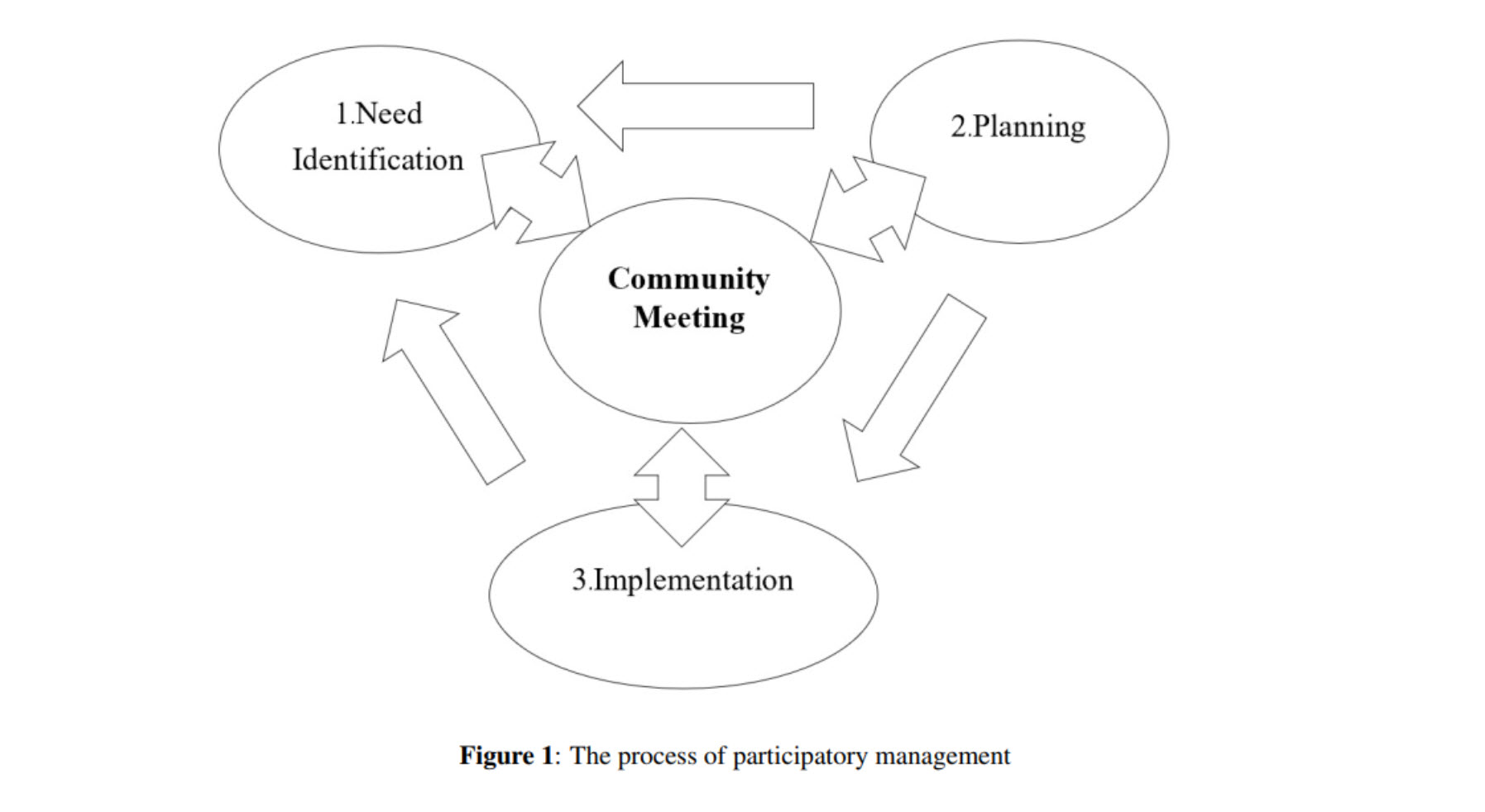Participatory Management for Sustainable Low-Carbon Community in Highland Community, Thailand
Main Article Content
Abstract
The concept of sustainable development by using participatory management is trendily favored for developing low-carbon communities. This research aimed to investigate participatory management for developing sustainable low-carbon communities, community performances in sustainable low-carbon communities, and contributing factors of these performances. The research area was located at Pa Pae Village, Pa Pae Sub-District, Mae Sa Rieng District, Mae Hong Son Province, Thailand. Data were analyzed from in-depth interviews, focus groups, and document investigations. The results indicated that participatory management consisted of a cycle of three stages, need identification, planning, and implementation, which required community meetings to make discussion and decision. The performances in sustainable low-carbon communities also involved environmentally friendly agriculture, forest restoration, conservation, community health management, community strength, and efficient use of resources. These performances relied on socio-culture of community, community leaders, and encouragement of agency. Therefore, participatory management should include the stage of evaluation. Leadership development in participatory management should be also focused to continue the community performances in sustainable low-carbon communities, along with encouraging active social learning process to achieve the goal of sustainable development.
Article Details

This work is licensed under a Creative Commons Attribution-NonCommercial-NoDerivatives 4.0 International License.
References
X. Zhang, G.Q.P. Shen, J. Feng, Y. Wu, Delivering a low-carbon community in
China: technology vs. Strategy?, Habitat International 37 (2013) 130-137.
K. Hobson, R. Mayne, J. Halmilton, Monitoring and evaluating eco-localisation:
lessons from UK low carbon community groups. Environment and Planning A,
Economy and Space 48(7) (2016) 1393-1410.
J.A. Chapman, N.A. Pambudi, Strategies and user-driven transition scenarios:
toward a low caron society, encompassing the issues of sustainability and society equity
in Japan, Journal of Cleaner Production 172 (2018) 1014-1024.
L. Yu, Low carbon eco-city: new approach for Chinese urbanization, Habitat International
(2014) 102-110.
C. Potipituk, Suasive measures in environmental management for sustainable low carbon
communities, NRRU Community Research Journal 13(2) (2019)1-14.
E. Shagholi, R. Abdolmalki, A.A. Moayedi, New approach in participatory management,
concepts and applications, Procedia Social and Behavioral Science 15 (2011) 251-255.
M.M. Rahman, M.E. Kabir, A.J.U. Akon, K. Ando, High carbon stocks in roadside
plantations under participatory management in Bangladesh, Global Ecology and
Conservation 3 (2015) 412-423.
M. Lien, N. Huyen, N. Cong, N. Minh, Exploring Potential Participation
of Vietnam in the Carbon Market, Low Carbon Economy 11 (2020) 25-43.
M. Khawtong, U. Leknoi, Lesson learned of driving a low-carbon agricultural
community under the concept of new theory agriculture: case study of Khlong Noi district,
Mueang district, Suratthani province, Journal of MCU Nakhondhat 8(7) (2021) 390-404.
E. Rodriguez-Izquierdo, M.C. Gavin, M.O. Macedo-Bravo, Barriers and triggers to
community participation across different stages of conservation
management, Environmental Conservation 37(3) (2010) 239-249.
A. Bryant, K. Charmaz, Introduction grounded theory research: methods and practices. In
A. Bryant & K. Charmaz (Eds.), The SAGE handbook of grounded theory (pp. 1-28). Los
Angelis, California: Sage Publications. 2010.
J. Krywkow, M. Hare, Participatory process management. The 4th International
Congress on Environmental Modelling and Software, Barcelona, Catalonia, Spain
(pp.888-899). 2008.
T. Schusler, D.J. Decker, M.J. Pfeffer, Social learning for collaborative natural resource management, Society and Natural Resources 16(4) (2003) 309-326.
D.V. Day, Leadership development. In A. Bryman, D. Collinson, K. Grint, Jackson,
B., & Uhl-Bien, M., The SAGE handbook of leadership (pp.37-50). London, Thousand Oaks, New Delhi, and Singapore: SAGE Publications. 2011.
P. Kirk, A.N. Shutte, Community leadership development, Community
Development Journal 39(3) (2004) 234-251.


